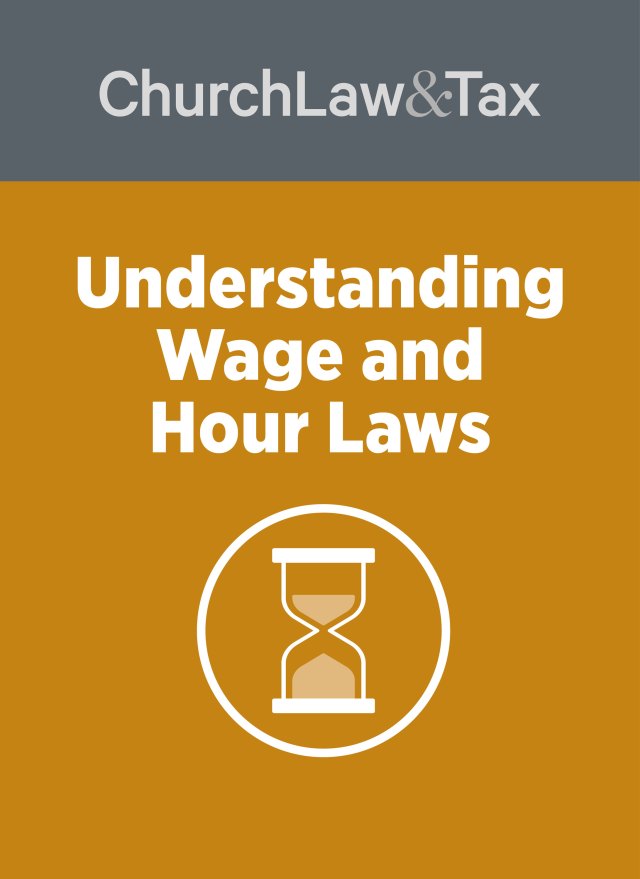• Key point. Churches may be liable, on the basis of negligent selection, for an employee’s acts of sexual misconduct if there was a failure to conduct an adequate background check at the time the employee was hired.
A Louisiana court ruled that a community college was legally responsible for a professor’s rape of a student, because it failed to conduct a background check before hiring him. While this case involved a state operated college, it will be relevant to churches and religious schools. The professor had a criminal record at the time he was hired, including convictions for possession of marijuana with intent to distribute, theft, and interstate transportation of forged securities. No background check, including a criminal records check, was conducted at the time the professor was hired, other than a verification of the professor’s academic credentials to be sure that he was qualified to teach. No inquiry was made by the college into the professor’s criminal history, either during an interview or on the job application. The victim later sued the college, claiming that it was responsible for her injuries on the basis of “negligent hiring.” Specifically, she asserted that the college was negligent in failing to conduct a criminal records check, or any other kind of background check, on the professor. A trial court rejected the victim’s claim of negligent hiring, and the case was appealed. A state appeals court ruled that the college was guilty of negligent hiring, and as a result was legally responsible for the victim’s injuries. It observed: “When an employer hires an employee who will have a unique opportunity to commit a crime against a third party in the performance of his duties, the employer has a duty to exercise reasonable care in the selection of that employee.” Whether or not an employee has a “unique opportunity” to commit a crime against a third party, the court considered the connection between the employment and the victim. That is, whether the victim met the employee as a result of the employment, and the employer would have received some benefit from the meeting if the wrongful act had not occurred.
The court concluded:
[The college] had a duty to use reasonable care when hiring a person placed in a position of authority as a professor. [It] breached its duty by hiring [the professor], a convicted felon who had served time in prison. The fact that [he] was an instructor … put him in a position to harm [students]. [The college’s] conduct was substandard for failing to screen a prospective professor and that was a cause of the injury. A professor is in a position where character, moral turpitude, and a clean record should be essential. The risk of being raped or harmed by a professor in a position of authority can be associated with the duty to use reasonable care when hiring.
Application. This case demonstrates the importance of conducting background checks on prospective employees and volunteer workers. The case also is important for the following reasons:
The court implied that a criminal records check is required in order to rebut a claim of negligent hiring. While the court seemed to limit this conclusion to employees with criminal records, the fact remains that employers generally will not know that a prospective employee has a criminal record without first conducting a criminal records check.
The court concluded that the professor’s previous convictions for a drug offense, theft, and forgery rendered him a risk of harm to students. Few if any other courts have reached such a sweeping conclusion. Most courts have concluded that a criminal record does not necessarily render a prospective worker a risk of harm to others. Rather, the character of the previous crimes must be considered. Several courts have concluded that drug offenses, theft, and forgery are not the kinds of crimes that make a person a risk of harm to others. Only crimes of violence, such as assault, murder, or rape, can do that. This court did not draw this distinction, but rather concluded that previous crimes involving property also render a person unfit for employment. This is a radical conclusion that few other courts have accepted.
The court concluded that teachers are in unique positions of authority, and as a result they have the opportunity to harm others. This imposed upon the school a duty to conduct an adequate background check before hiring a teacher. Such a check must do more than verify academic credentials. This court suggested that the background check must include the following: (1) asking the applicant during an interview about a criminal record; (2) asking the applicant in an employment application about previous criminal convictions; and (3) conducting a criminal records check.
In conclusion, churches and religious schools must recognize the importance of conducting background checks on persons, such as teachers, who may pose a risk of harm to others because of the authority vested in them. This is especially true in any state whose courts reach the same conclusions as this court. The risk of liability, based on negligent hiring, can be reduced through a number of steps, including appropriate questions in interviews and on employment applications; reference checks; and criminal records checks. Harrington v. Louisiana State Board of Elementary and Secondary Education, 714 So.2d 845 (La. App. 1998). [Seduction of Counselees and Church Members, Negligence as a Basis for Liability]
© Copyright 1999 by Church Law & Tax Report. All rights reserved. This publication is designed to provide accurate and authoritative information in regard to the subject matter covered. It is provided with the understanding that the publisher is not engaged in rendering legal, accounting, or other professional service. If legal advice or other expert assistance is required, the services of a competent professional person should be sought. Church Law & Tax Report, PO Box 1098, Matthews, NC 28106. Reference Code: m67 c0399



